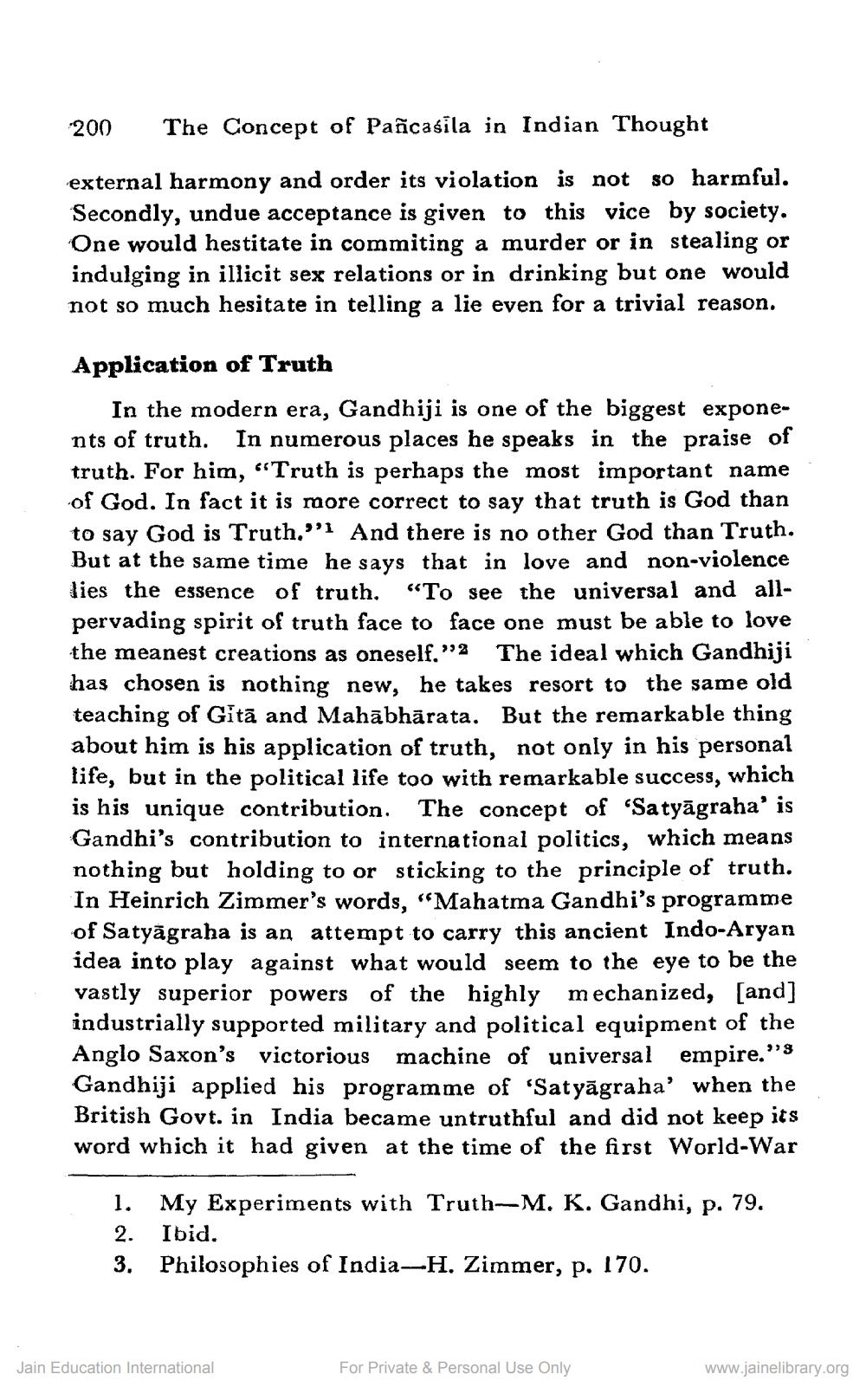________________
200
The Concept of Pancasila in Indian Thought
external harmony and order its violation is not so harmful. Secondly, undue acceptance is given to this vice by society. One would hestitate in commiting a murder or in stealing or indulging in illicit sex relations or in drinking but one would not so much hesitate in telling a lie even for a trivial reason.
Application of Truth
In the modern era, Gandhiji is one of the biggest exponents of truth. In numerous places he speaks in the praise of truth. For him, “Truth is perhaps the most important name of God. In fact it is more correct to say that truth is God than to say God is Truth."1 And there is no other God than Truth. But at the same time he says that in love and non-violence lies the essence of truth. “To see the universal and allpervading spirit of truth face to face one must be able to love the meanest creations as oneself.”2 The ideal which Gandhiji has chosen is nothing new, he takes resort to the same old teaching of Gitā and Mahābhārata. But the remarkable thing about him is his application of truth, not only in his personal life, but in the political life too with remarkable success, which is his unique contribution. The concept of "Satyāgraha' is Gandhi's contribution to international politics, which means nothing but holding to or sticking to the principle of truth. In Heinrich Zimmer's words, “Mahatma Gandhi's programme of Satyāgraha is an attempt to carry this ancient Indo-Aryan idea into play against what would seem to the eye to be the vastly superior powers of the highly mechanized, [and] industrially supported military and political equipment of the Anglo Saxon's victorious machine of universal empire."'$ Gandhiji applied his programme of "Satyāgraha' when the British Govt. in India became untruthful and did not keep its word which it had given at the time of the first World War
1. My Experiments with Truth-M. K. Gandhi, p. 79. 2. Ibid. 3. Philosophies of India-H. Zimmer, p. 170.
Jain Education International
For Private & Personal Use Only
www.jainelibrary.org




